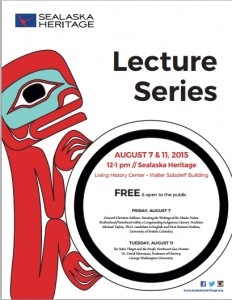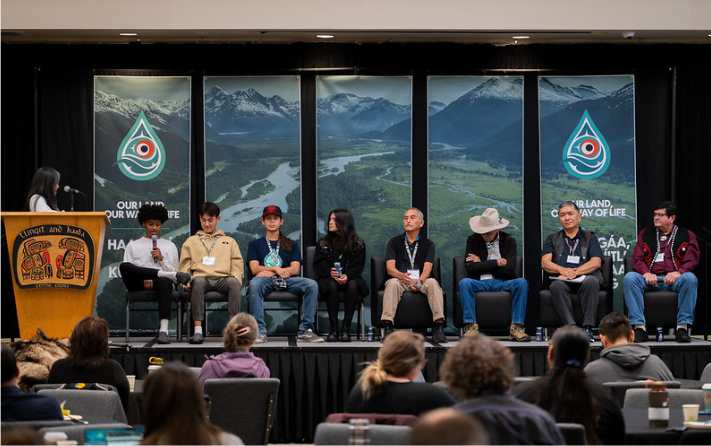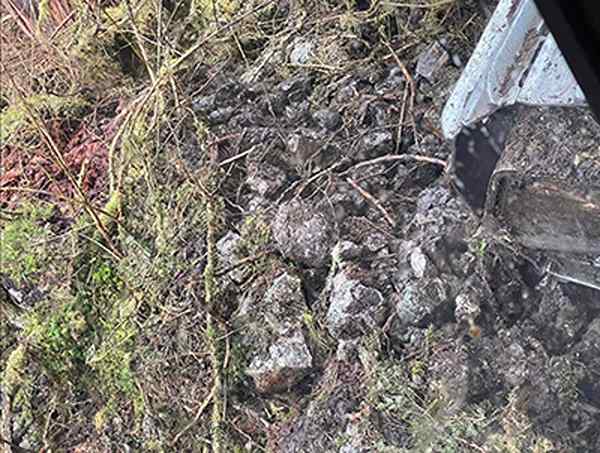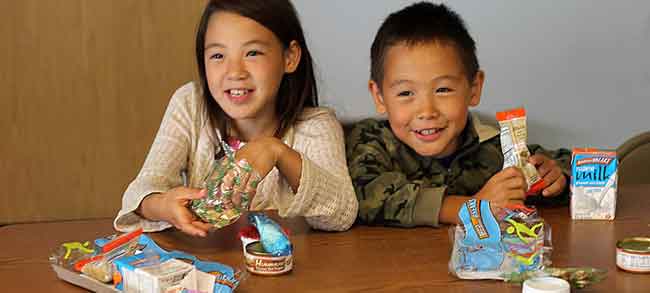 Sealaska Heritage Institute will sponsor two free lectures during the first two weeks of August.
Sealaska Heritage Institute will sponsor two free lectures during the first two weeks of August.
On Friday, Aug. 7, Michael Taylor, a Ph.D. candidate in English and First Nations Studies at the University of British Columbia, will present “Onward Christian Soldiers: Situating the Writings of the Alaska Native Brotherhood/Sisterhood within a Longstanding Indigenous Literary Tradition.”
In his research, Taylor argues that the current record of Alaska Native literature is divided into two categories: traditional oral literature and post-1960s fiction and poetry.
“Though both categories of literature are vital, the glaring absence of early twentieth-century Alaska Native writers maintains the myth that Alaska Natives remain only recently and marginally literate,” Taylor wrote.
In his presentation, Taylor will explore the early writings of the ANB/ANS—including their constitutions, petitions and newspapers—to highlight how these writings attest to ongoing Alaska Native community and survival during an era of forced individualization and assimilation.
On Tuesday, Aug. 11, Dr. David Silverman, a history professor from George Washington University who specializes in American Indian and Colonial American History, will present “The Sitka Tlingit and the Pacific Northwest Gun Frontier.”
According to Dr. Silverman, “Between the 1780s and early 1800s, Native people along the Pacific Northwest coast went from being some of the most isolated populations in the world to hosting merchant ships from a half dozen nations and participating in a global commerce linking Europe, the Americas, Polynesia, and China. Though often characterized as the fur trade, this exchange was also very much an arms trade in which Indians acquired smoothbore, flintlock muskets, ammunition, and sometimes even artillery guns. In the Pacific Northwest, as in other times and places in North America, temporarily cornering the weapons market enabled some Native groups to transform themselves into regional powers who dominated not just their indigenous neighbors, but Europeans as well. The Sitka Tlingit were one of those peoples.”
Silverman’s talk will explore the rise of the Sitka Tlingit’s armament and its political ramifications, including the famous 1802 and 1804 battles with the Russians.
Both lectures will be held at noon in the Living History Center on the second floor of the Walter Soboleff Building in Juneau. Attendees are invited to bring their own lunch.
Sealaska Heritage Institute is a private, nonprofit founded in 1980 to promote cultural diversity and cross-cultural understanding. The institute is governed by a Board of Trustees and guided by a Council of Traditional Scholars. Its mission is to perpetuate and enhance Tlingit, Haida, and Tsimshian cultures of Southeast Alaska.
CONTACT: Chuck Smythe Culture and History Director, 907.586.9282








